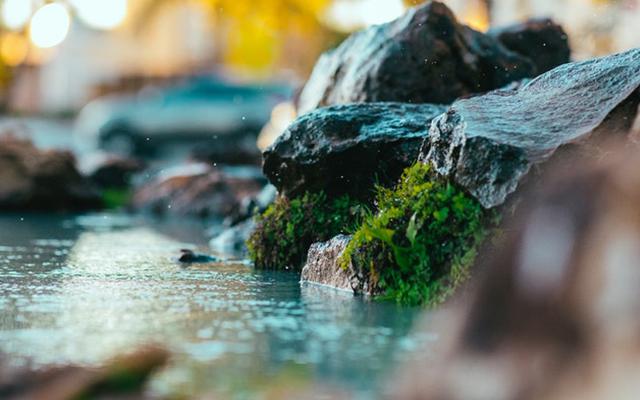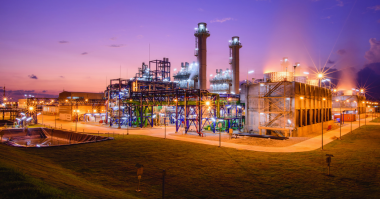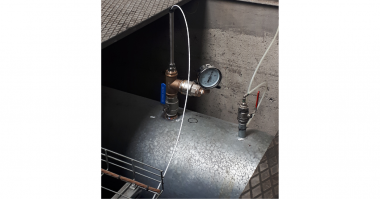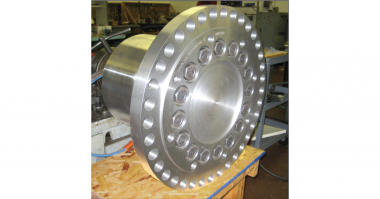“When the well is dry, we know the worth of water.” — Benjamin Franklin
Groundwater week is fast approaching with this year’s date set to begin on December 4. Sponsored by the National Ground Water Association, there will be an exhibit, workshops, and summit in Las Vegas. Whether you can or cannot attend, we thought it would be a good time to get a footing on what will be discussed by sharing some insights on the life cycle of water.
Groundwater Basics
Groundwater is referred to as the water that sinks into the earth as the result of rain and other precipitation. It travels downward to fill cracks and openings in beds of rocks, dirt, and sand. Groundwater is considered a renewable resource, but the rates of renewal can vary greatly due to the conditions of the environment. Not counting the polar ice caps, 95% of all the freshwater in the world is groundwater. Rivers, lakes, ponds, and other forms of surface water make up only 3% of the planet’s freshwater.
Groundwater Sustainability
Groundwater sustainability has become a major focus in recent years. Groundwater resources must accommodate current and future needs, which is why various industries are working to utilize water without causing unacceptable environmental or socioeconomic damage. This can include over-use and depletion of groundwater, intrusion of seawater, and land subsidence.
Life Cycle of Groundwater
Known as the hydrologic cycle, the life cycle of groundwater plays an important role in sustainability. Groundwater is an important part of the cycle as seen in states experiencing dry conditions, where droughts and shortages are commonplace. Groundwater can often be stored in these places for later use, and trouble arises when reserves get depleted.
Water that is drawn from these aquifers can be done so at a faster rate than rainfall can replenish it, making it similar to how oil is mined and depleted. When consumption / evaporation occurs at a higher rate than recharge/precipitation, this is referred to as “upsetting the cycle”. Fortunately, these shortages cause concern and often prompts us to develop better management of resources with a goal of consuming less than the rate of replenishment.
Life Cycle of Groundwater in Power Generation
Although hydro power plants use the natural moving force of water to generate power, all other forms of power generation use it as well in other critical applications. We have a few examples:
- Generation of electricity - Approximately 65% of the electricity in the United States is derived from power generators that need constant cooling. These types of power plants are referred to as thermal plants. They often heat water to produce steam when generating electricity. Nuclear and coal plants can draw anywhere from 20 to 60 gallons of water to produce each kilowatt-hour of electricity. This is why power plants are often found next to a water source.
- Refining of fuel – Water is crucial when refining fuels such as petroleum, coal natural gas, and even nuclear fuel. This type of power generation also produces a significant amount of wastewater, which is also part of its life cycle.
- Extraction of fuel: You may know about the process of fracking; where water is injected into the ground to release the liquid natural gas underneath. Water is also used to extract oil, coal, and uranium.
- Transportation: Water is needed to transport fuel through pipelines in the form of a finely ground coal and water mixture (known as a slurry). Water is also used to test fuel pipelines for leaks.
More on the Life Cycle of Water and Groundwater Week
For more information, check out these resources:
Fundamentals of the Water Cycle - The U.S. Geological Survey shares this article on how items like the atmosphere, ocean currents, and more affect the water cycle.
Brave Blue World - This documentary tells the story of how new technologies and innovations are changing the ways we think about how we manage water.
For Students - The Water Environment Foundations shares this WaterPalooza Toolkit. It is a collection of hands-on activities that water experts may bring to schools and other venues to educate k-12 students about water, as well as other resources.
References:
https://www.ngwa.org/what-is-groundwater/About-groundwater
https://www.ngwa.org/what-is-groundwater/About-groundwater/the-hydrologic-cycle
https://www.ucsusa.org/resources/how-it-works-water-electricity





Comments